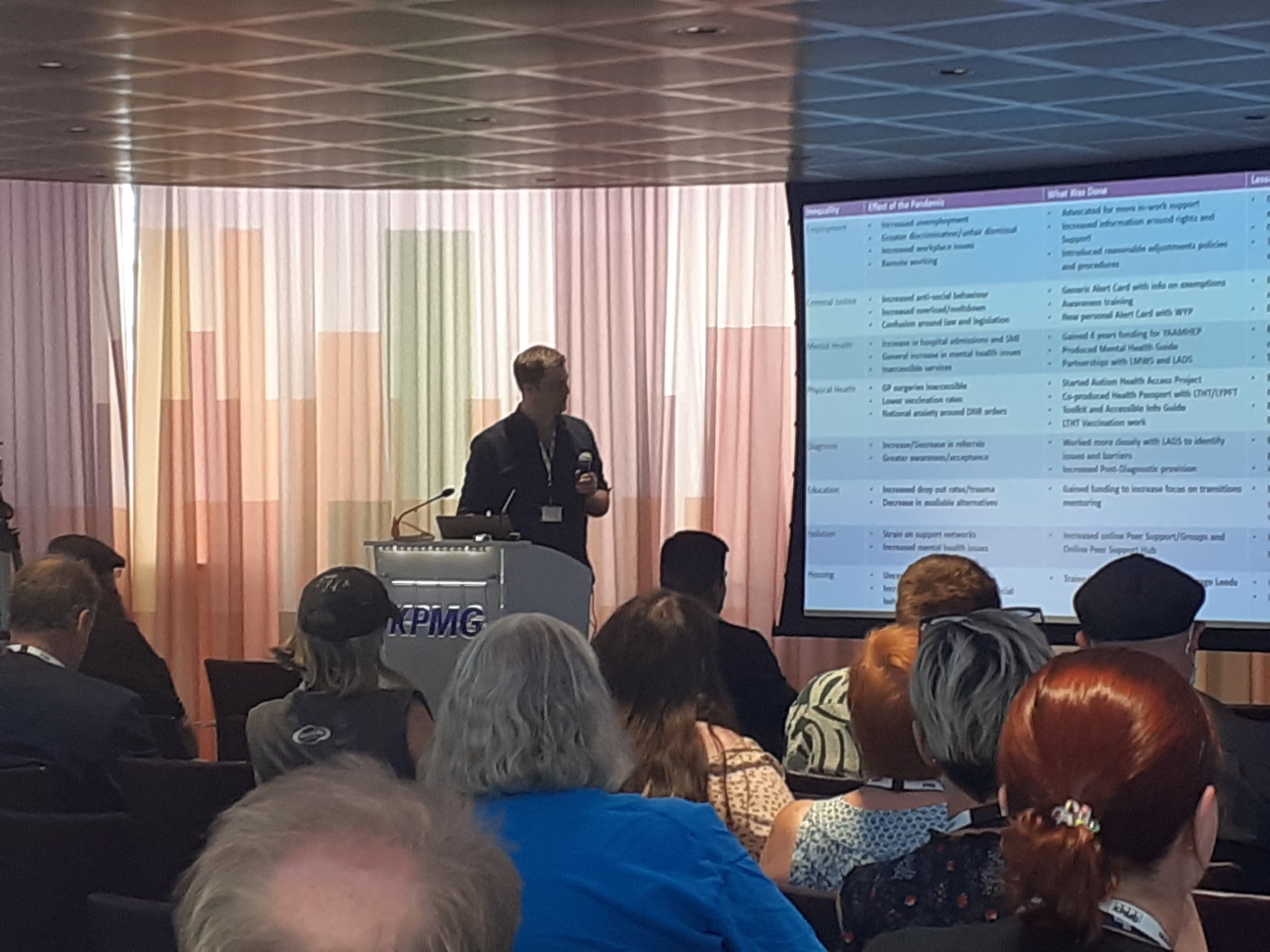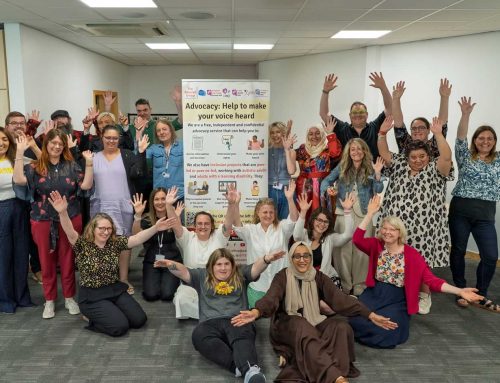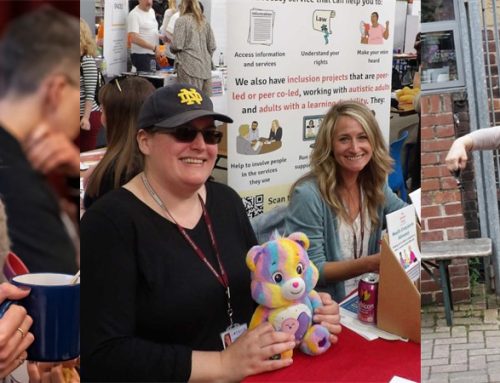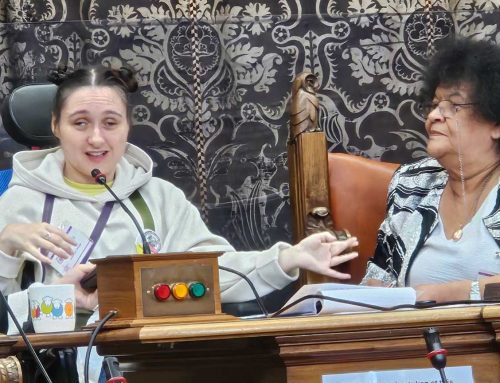To mark Dyslexia Awareness Month 2023, we have asked one of our colleagues about what it is like to work for an advocacy charity as a dyslexic person. We are speaking to Owen Walker, our Autism AIM Manager, about how being dyslexic informs his role and how he works with colleagues, clients and people from other organisations.
When did you first realise that you might be dyslexic?
I think I knew when in high school. However, none of the teachers ever suggested to me that I might be dyslexic, and it was up to them to put me forward for an assessment, which didn’t happen.
But I think I was aware of it and the difficulties I had in school. It wasn’t until I was 23 when I enquired about a diagnosis.
At that point, the cost of it was too restrictive. Since then, I just told myself that I was dyslexic until I got my diagnosis.
Were there any things you found difficult before and during the diagnostic process?
The diagnostic process itself was quite simple. It’s done through an occupational health referral through work and the actual assessment was relatively short – a couple of hours and quite easy.
At the start, I said I thought I was mildly dyslexic or possibly not dyslexic. But, at the end of the assessment, I was told I was severely dyslexic, which was a surprise to me.
I didn’t expect to be so emotionally affected by it, because I had many years of feeling like something about me was different, but not necessarily knowing why. Knowing it for sure gave me validation, but a lot of looking back about how I’d felt bad about not being good enough to do things.
It was a positive thing to get a diagnosis and have that confirmed.
How does being dyslexic affect your day-to-day work?
In my role as a manager, I’m very good at wide association. Bringing lots of different things together, I feel like I have an advantage there compared to most people in terms of knowing what’s going on. Seeing the big picture and then holding that down into ideas that are workable.
I struggle with large bits of writing – reports, for example. Processes can be difficult to remember, even if I’ve done them hundreds of times. Sometimes, my brain just says no to me. I can’t remember what that process is, which can be very frustrating at times.
There is a lot of technology that can help. Given that one in 10 people are dyslexic, I think that has been considered when building apps and tools like the Microsoft Office suite.
Dyslexia makes some things harder and others easier. I have had lots of understanding from my line manager for tasks that I will find more time-consuming. If something takes me three times as long as somebody else to do, I must avoid distraction to be able to process things properly. I think I’m recognised for my strengths as well as the things I find difficult.
Being neurodivergent, do you feel there are shared barriers between you and the autistic people you work with?
I think I was drawn to work for AIM and have been with them because I had a lot of empathy for my autistic colleagues and the people we work with. Understanding systems and any kind of work can be difficult when they’re designed for neurotypical people. That does make life a lot harder for people like me.
I think that there are lots of differences between different neurodivergent people. Although it doesn’t always apply, I think it has given me a lot of empathy. Knowing that I’ve struggled with things myself in the past makes me think about things in a different way, hopefully helping me to work with autistic people well without being autistic myself.
What would you recommend to anyone looking to make their services more dyslexic-friendly?
People will assume that I will be able to do certain work quickly or be able to engage with and understand things. I think there is a lot of work that needs to be done generally about making services more dyslexia friendly. It affects one in 10 people, so there should be more there. There should be more services for dyslexic people.
There’s some good work being done, but there is still a long way to go for awareness of how dyslexia can affect different people. Funding for adults who are dyslexic is very minimal and it would help a lot of people to work effectively and manage different aspects of their life.
Making information more accessible is essential for dyslexic people. There are some really good resources on this out there already, like Autism AIM’s guide to making information accessible for neurodivergent people. This should be standard across all services.
I think having resources in more visual formats is helpful. Emails are a big one for me. If I see big blocks of text, it will just take me a lot longer to process and understand; I might miss things. Getting letters can be extremely confusing – it’s a big barrier for lots of people.












